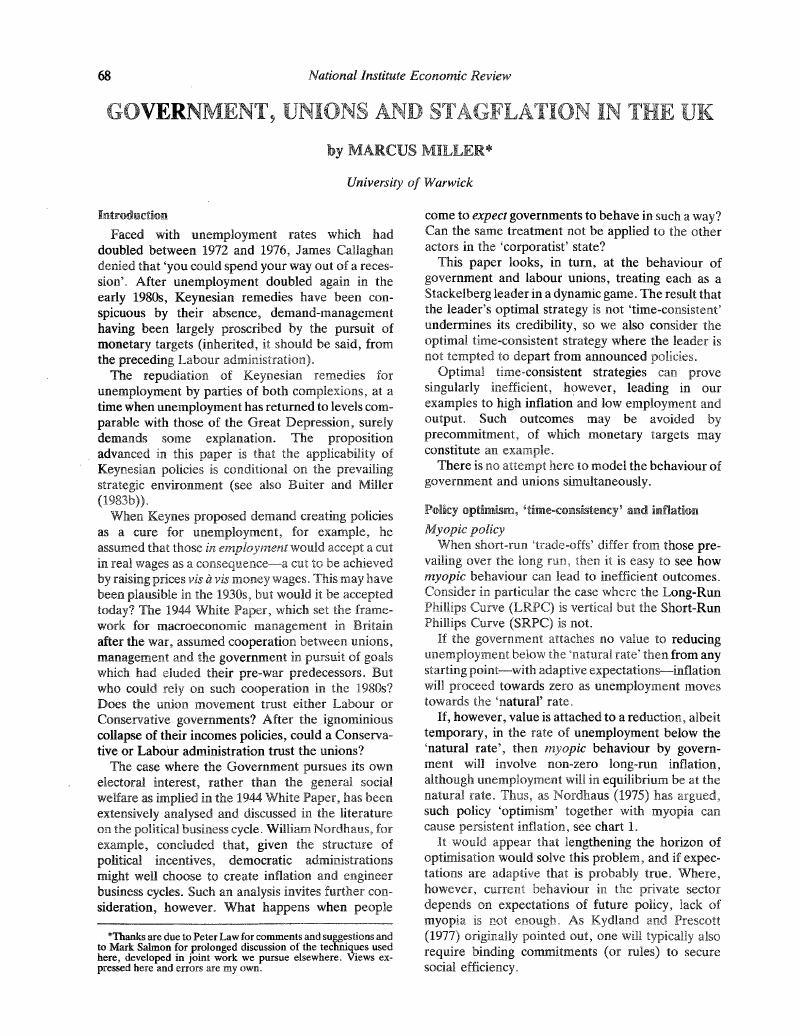No CrossRef data available.
Article contents
Government, Unions and Stagflation in the UK
Published online by Cambridge University Press: 26 March 2020
Abstract

- Type
- Articles
- Information
- Copyright
- Copyright © 1984 National Institute of Economic and Social Research
Footnotes
Thanks are due to Peter Law for comments and suggestions and to Mark Salmon for prolonged discussion of the techniques used here, developed in joint work we pursue elsewhere. Views expressed here and errors are my own.




